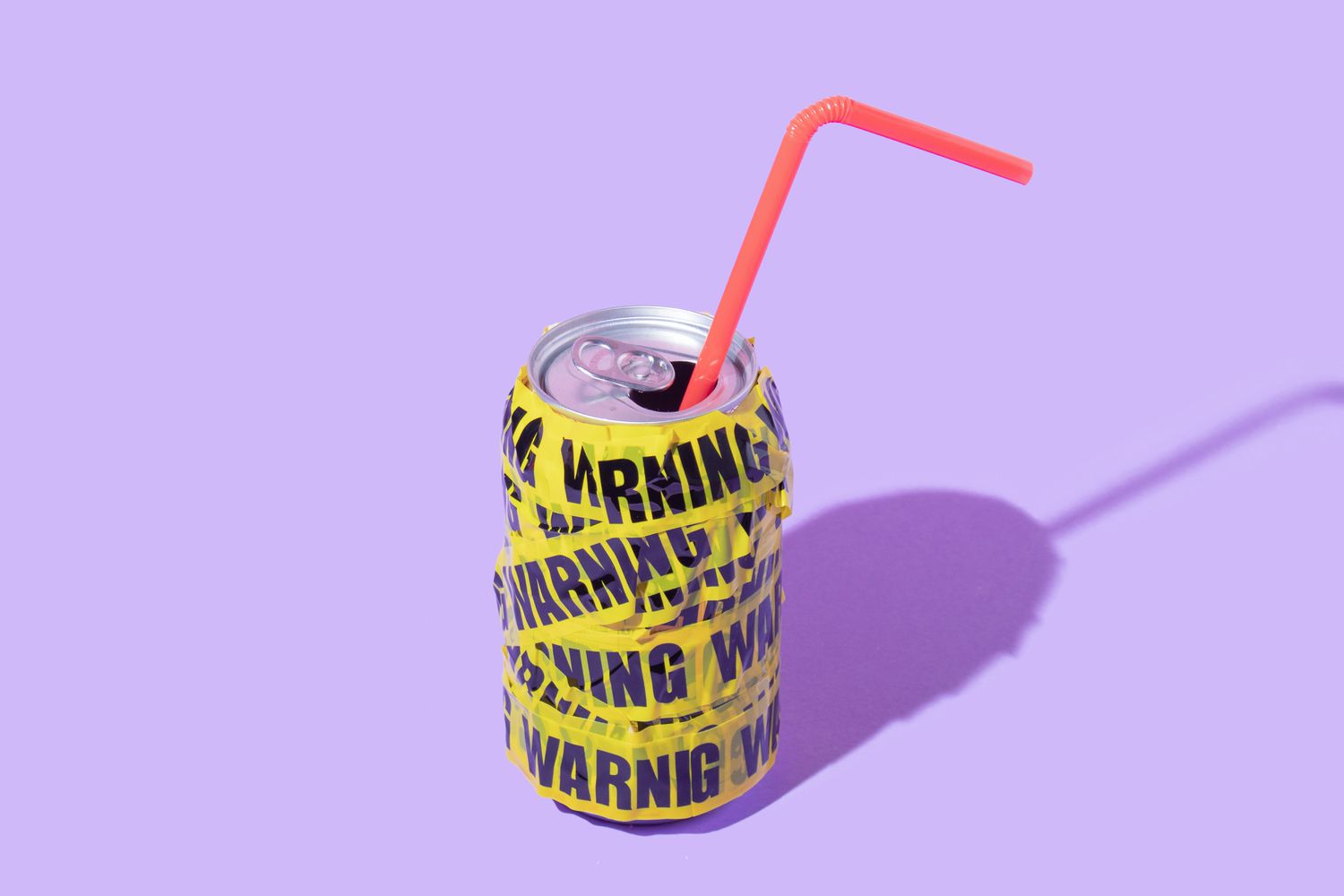
If you drink artificially-sweetened beverages regularly, recent research suggests it might be impacting your heart health. A new study, published March 5th, 2024, in Circulation: Arrhythmia and Electrophysiology, a journal of the American Heart Association, has found a potential link between consuming artificially-sweetened drinks and an increased risk of atrial fibrillation (AFib). AFib is a common condition characterized by an irregular heartbeat that can lead to serious complications such as stroke, heart failure and other heart-related issues. Specifically, the researchers observed a 20% increase in AFib risk for those who drank more than 2 liters of artificially-sweetened beverages each week. These findings are timely, considering an estimated 12.1 million Americans will have AFib by 2030. Read on to learn more about this compelling new study and what you can do to minimize your risk.
Related: What Happens to Your Body When You Eat Artificial Sweeteners
What the Study Found
To arrive at these conclusions, researchers examined data from dietary surveys and genetic data for over 200,000 adults who did not have AFib when they joined the UK Biobank from 2006 to 2010. Over the nearly decade-long monitoring period, 9,362 of the study’s participants developed AFib.
The researchers found that those who consumed two liters or more of artificially sweetened drinks per week had a 20% higher risk of developing AFib compared to those who did not consume these beverages. Additionally, those who consumed similar amounts of sugar-sweetened beverages had a 10% higher risk of AFib.
Related: 15 Ways to Eat Less Sugar—Without Missing It
The study also revealed that consuming one liter or less per week of unsweetened juice, such as orange or vegetable juice, was associated with an 8% lower AFib risk. However, the study could not say definitively whether sweetened beverages cause AFib, as the association remained after considering the participants’ genetic susceptibility to the condition.
“Our study’s findings cannot definitively conclude that one beverage poses more health risk than another due to the complexity of our diets and because some people may drink more than one type of beverage,” said lead study author Ningjian Wang, MD, PhD, a researcher at the Shanghai Jiao Tong University School of Medicine in Shanghai, China, in a statement. “However, based on these findings, we recommend that people reduce or even avoid artificially-sweetened and sugar-sweetened beverages whenever possible. Do not take it for granted drinking low-sugar and low-calorie artificially-sweetened beverages, [as] it may pose potential health risks.”
While the exact mechanisms linking sweetened beverages to AFib risk are still unclear, Wang suggests that factors such as insulin resistance and the body’s response to various sweeteners may play a role. Artificial sweeteners commonly found in food and beverages include sucralose, aspartame, saccharin and acesulfame.
It’s important to note that this study has its limitations. It was an observational study and therefore cannot prove causation between beverage consumption and AFib risk. Also, the study required participants to recall their diets from memory, which may have allowed for memory errors or bias.
Related: People Who Consume Artificial Sweeteners May Have a 9% Higher Risk for Heart Disease, New Research Suggests
The Bottom Line
While more research is needed to understand the relationship between artificial sweeteners and AFib fully, it’s clear that reducing your intake of these beverages may have a positive impact on your heart health. Opting for naturally less-sweet alternatives like water, herbal tea or unsweetened seltzer water may help lower your risk of AFib and other heart-related conditions.
